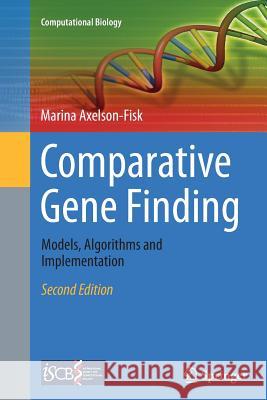Comparative Gene Finding: Models, Algorithms and Implementation » książka
Comparative Gene Finding: Models, Algorithms and Implementation
ISBN-13: 9781447168751 / Angielski / Miękka / 2016 / 382 str.
This unique text/reference presents a concise guide to building computational gene finders, and describes the state of the art in computational gene finding methods, with a particular focus on comparative approaches. Fully updated and expanded, this new edition examines next-generation sequencing (NGS) technology, including annotation pipelines for NGS data. The book also discusses conditional random fields, enhancing the broad coverage of topics spanning probability theory, statistics, information theory, optimization theory, and numerical analysis.Topics and features: introduces the fundamental terms and concepts in the field, and provides an historical overview of algorithm development; discusses algorithms for single-species gene finding, and approaches to pairwise and multiple sequence alignments, then describes how the strengths in both areas can be combined to improve the accuracy of gene finding; explores the gene features most commonly captured by a computational gene model, and explains the basics of parameter training; illustrates how to implement a comparative gene finder, reviewing the different steps and accuracy assessment measures used to debug and benchmark the software; examines NGS techniques, and how to build a genome annotation pipeline, discussing sequence assembly, de novo repeat masking, and gene prediction (NEW).Postgraduate students, and researchers wishing to enter the field quickly, will find this accessible text a valuable source of insights and examples. A suggested course outline for instructors is provided in the preface.











